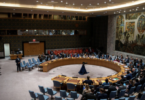It is very terrible and worrying that the restive Balochistan Province has witness three deadly terrorist attacks just in two days. It indicates intelligence failure and lack of proper watch and ward and security arrangements on the still porous border with war torn and terrorist groups’ heaven Afghanistan and 740 kilometer long border with Iran. The intrusion of a group of terrorists from Iran and killing 14 security personnel last month identify loopholes in security system on borders and lack of surveillance on suspected people that sneak into Pakistan from the neighbouring countries. The reaching of a group of three terrorist to the heavily secured port city of Gawadar, disguised as security forces personnel, necessitates overhauling of security system.
In the past few days four terrorist attacks have occurred in different areas of Balochistan which is a matter of great concern. Earlier, Balochistan Liberation Army (BLA) militants attacked a coal mine in Harnai and killed two Frontier Corps Personnel, two miners and one driver and then came a ferocious attack on a luxury hotel in Gawadar. A police van was attacked with Improvised Explosive Device in the Satellite Town Area of the provincial capital Quetta on Monday martyring four policemen and critically injuring two other. In addition 10 civilians were also injured. The policemen were guarding a mosque. On Tuesday unidentified assailants opened fire on labourers in under construction house in Manju Shula area of Naseerabad district. The labourers belonged to Tandojam area of Sindh.
Unlike the Pak-Afghan border in Khyber Pukhtunkhwa, the border in Balochistan is free for all for the entry of Afghan Nationals. There are increasing complaints that the Afghan Refugee families who avail the repatriation benefits from UNHCR manage their comeback into Pakistan via loose Chaman border as their reentry without travel documents through joint border in Khyber Pukhtunkhwa has become pretty difficult. It is now an established fact that most of the terrorist attacks inside Pakistan are being planned on the Afghan soil as the terrorist can easily get morphed with Afghan refugees and get local handlers and facilitators. But even then Prime Minister Imran Khan, as gesture of goodwill, had made an unwise announcement of providing Pakistani CNICs to three million Afghan nationals who are staying in Pakistan for the past four decades.
In his analysis on the recent terrorist attacks, Home Minister of BalochistanLaiqatShahwani described the presence of over one million Afghan Refugees in the province as a major risk factor and strongly advocated their repatriation to their motherland besides strictly regulating their daily movement by keeping them under strict surveillance. The repatriation process has been resumed in March but has lost its steam as no repatriation plan was either put in place by the previous governments and nor by the present one. Ministry of States and Frontiers Region is responsible for working out this plan in consultation with the UNHCR. At present hardly two or three Afghan Refugee families opt for repatriation at Peshawar UNHCR center with firm resolve to come back via Chaman border in Balochistan. That is why from Quetta center the repatriation rate is almost zero. The risk factor connected with the stay of millions of Afghan nationals and their reentry into Pakistan after repatriation without travel documents through border in Balochistan need utmost attention of the federal government.






